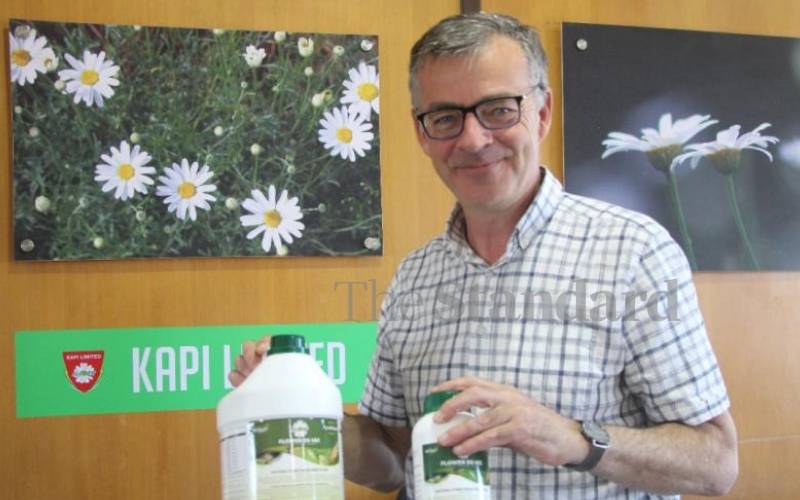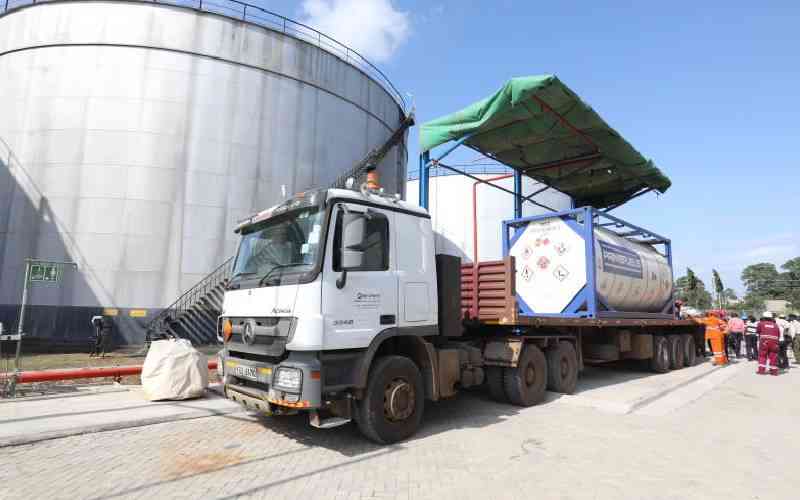×
The Standard e-Paper
Home To Bold Columnists

For the last 14 years, Ian Shaw has been running Kapi Ltd - steering it into one of the region’s largest manufacturers of pyrethrum products.
This is after he settled in Kenya in 2008. The 58-year-old Nakuru-based firm (Kapi) used to own some of Africa’s largest pyrethrum farms but stopped in 2014 to focus on its core business of manufacturing.







